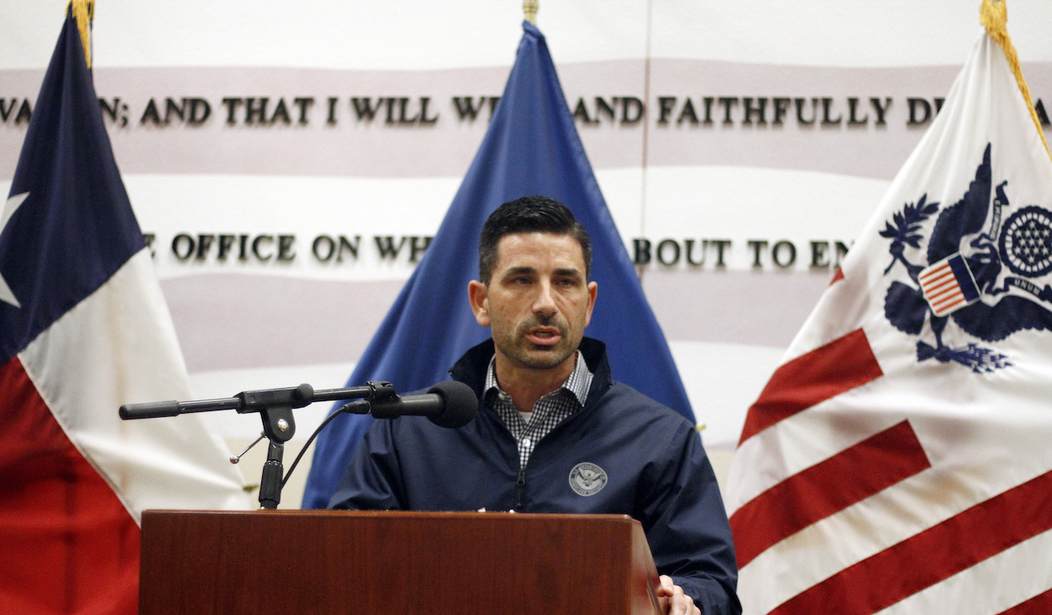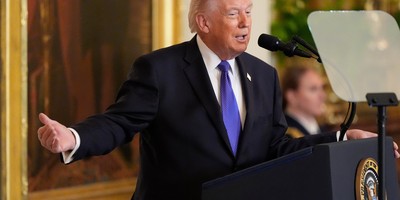Stop me if you have heard this before: A Trump-era federal agency made a decision that led to widespread misunderstanding online that snowballed into a wild overreaction on Twitter, cable news, and the like. I know, it is hard to keep track.
Unsurprisingly, it happened again. This time, it deals with a topic probably few people understand: the Student and Exchange Visitor Program (SEVP) administered by U.S. Immigration and Customs Enforcement (ICE). This week, ICE quietly announced that foreign students studying in the United States on F-1 and M-1 visas would not be able to remain in the United States if their courses were entirely online for the fall 2020 semester. Acting Secretary of Homeland Security Chad Wolf clarified further that international students can take up to three online classes and remain in the country, and that these rules apply only if their entire coursework is online.
Immediately, the consternation and hysteria began. “International students here in the US could be deportedif the university they’re attending switches to online classes,” proclaimed ABC News. NPR’s All Things Considered parroted a similar story, claiming ICE was “threatening” students with deportation if they could not attend in-person classes. Hillary Clinton tweeted that “this move is cruel, unnecessary, and counterproductive to America’s long-term interests. A Trump administration special.”
This hysteria is completely unfounded, unless you are a university about to lose millions of dollars by missing out on international students who make up an inordinate share of tuition fees. Almost immediately, Harvard and MIT sued the Trump administration, saying that “we will not stand by to see our international students’ dreams extinguished by a deeply misguided order.” Of course, no one is extinguishing the dreams of anyone. They can still enroll in their regular online courses outside of the country. For students treating international study for what it is - a temporary arrangement - this is not controversial. The thinking is much different for students treating international study as a gateway to American citizenship.
Recommended
Remember, international students are not immigrants. A student visa alone cannot lead you to a green card. Students come on nonimmigrant visas because school is a temporary endeavor. Many students return home during summers. Many likely left after the U.S. became the epicenter of the global coronavirus pandemic.
Traditional rules do not allow international students to take a majority of their classes online as a way to prevent fraud. This is for good reason. Student visa fraud is real and rampant. ICE arrested eight Indian nationals in January 2019 after they attempted to bring migrants over on student visas for a university that did not exist. David North at the Center for Immigration Studies continues to document the proliferation of visa mills - sham universities used to import thousands of foreign “students” as a get-rich scheme. Berkeley students even began planning fraudulent courses to circumvent ICE rules, with one student saying "Looks like one other possible solution will be to see if the univ can make them all sign up for an outdoor PE class.”
If universities are entirely online, why would international students on temporary visas need to be in the United States in the first place? Especially if those universities went entirely online because of a contagious and deadly respiratory infection? Universities obviously have skin in the game because of the enormous financial considerations that international students bring. Immigration activists complain because they claim this as another example of President Trump trying to dismantle the legal immigration system. In fact, activists sent a petition to the White House, with signatories requesting that F-1 students stay in the United States. The petition regurgitates typical talking points about America turning away skilled foreigners, which of course this policy does not do as long as international students are willing to continue their education online.
So, are international students studying in the United States because they value the education of American universities, or are they studying in the United States because they want to permanently immigrate and work here? If the answer is the former, then there is nothing to complain about. Universities are free to retain them as online students, regardless of where they log onto Zoom from. ICE is not stripping students of their education so long as their university is still willing to admit them as online students, which seems likely given the university’s established dependence on foreign student fees.
If the answer is the latter, then clearly there is a significant misunderstanding about what the purpose of our international student program is. The F-1 visa is not a pathway to citizenship, even if they have a work authorization stapled to their diplomas through the controversial Optional Practical Training (OPT) program. Misguided policies like OPT invite a false sense of permanent status to students who are only living in the U.S. temporarily as they pursue an education. American students studying abroad do not expect to become citizens or immediate employees of the countries in which they study simply because they attended university there.
It would make better sense to prioritize graduates of American universities for citizenship rather than random nephews and nieces. However, under our current immigration laws, only a small percentage of immigrants are selected based on an objective assessment of the education and skills. A merit-based immigration system, such as the RAISE Act, would actually reward exceptional international students instead of treating them with indifference. Ironically, the people screaming the loudest about the changes to the student visa policy are steadfastly opposed to moving to a merit-based immigration system.
But the RAISE Act is not law, and international students are not immigrants; they are visitors who are expected to meet certain conditions in order to remain here. The hysteria by universities, advocacy groups, and a sympathetic press ignores common sense in favor of scoring rhetorical points against another immigration decision by the Trump administration.
Preston Huennekens is a government relations associate at the Federation for American Immigration Reform(FAIR).

























Join the conversation as a VIP Member